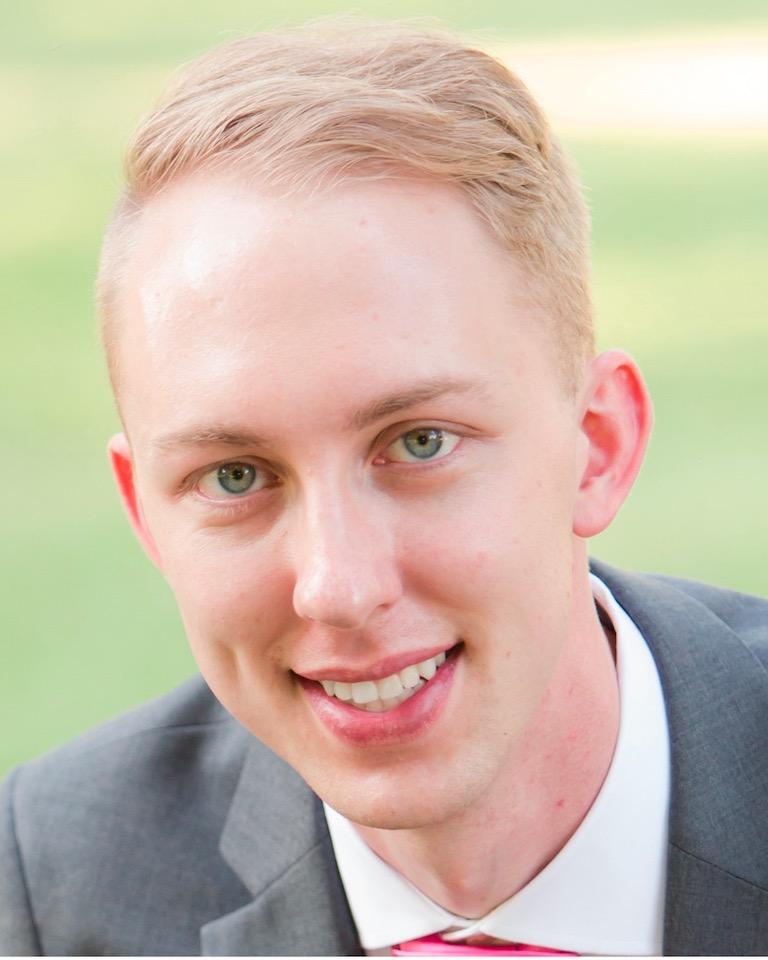Jake Thompson

February 2022 Alumni Spotlight
KU Major: Behavioral Neuroscience
Graduation Year: 2014
Current Occupation: Senior Psychometrician
List the faculty member, staff, graduate student, or postdoc who mentored your research or creative project: Evangelia Chrysikou
Describe the undergraduate research/creative experience that you had while at KU: As an undergraduate I had the opportunity to work on multiple project in Dr. Chrysikou's lab related to cognition. This included getting hands-on experience with new technologies such as transcranial direct current stimulation and fMRI machines. I also had the opportunity to lead my own project, which ultimately became my honor's thesis.
Questions:
Q: What did your research or creative project look like on a day-to-day basis? What did you spend most of your time doing?
A: My day-to-day activities varied over the course of the project. In the beginning, I spent most of my time reading the research literature to help inform the design of my study. Once the study was up and running, I spent my time with participants, administering the study protocol. Finally, toward the end of the project I spend my time analyzing the data and writing up the results for my thesis.
Q: What do you think was the most important thing you learned while doing undergraduate research?
A: During my time in Dr. Chrysikou's lab, I learned how to conduct and manage and research from conceptualization to publication. This start to finish experience is not something most undergraduates have the opportunity to engage in. When I started graduate school, most of my cohort had been involved in different pieces of the research pipeline, but very few had managed the process all the way through. My undergraduate experience gave me a head start in my graduate education.
Q: What advice do you have for undergraduates who might be interested in doing research or creative scholarship?
A: Find an advisor or mentor who is truly invested in your success. Doing this type of research support is certainly part of the job, and a valuable learning experience! But you want an advisor who also invested in your personal growth, and who will give you opportunities aligned to your goals. If you feel you aren't getting what you need from your advisor, it's okay to switch and pursue other opportunities. Finding the right advisor/advisee match is critical, so it's important that you not lock yourself into a situation that isn't fulfilling.
Q: Do you use any of the skills or perspectives gained doing research in your current occupation? How so?
A: In my current role, I am involved in numerous research projects related to educational assessment. This includes some projects where I'm leading the project from beginning to end, and others where I am mostly focused on analysis and interpretation. Given that I am in a research position now, I use the skills and perspectives I gained from my undergraduate experience every day. But there are other skills such as critical thinking, problem solving, and the ability to find creative solutions that are relevant to the parts of my job that don't directly involve research. The skills you learn from research are applicable to just about any occupation.
Q: Many undergraduate researchers are making decisions about what to do after they graduate from KU. Having been in those shoes, what do you know now that you wish you’d known then? Do you have any advice?
A: There are many paths to success! For some that will mean graduate school, but for others that may not be necessary. Look at job postings in your field to see what is actually required before making any big decisions. If you decide graduate school is the next step, don't make decisions based on the prestige of the program or professors. Find the place where you fit in, and where you get along the best with your potential advisor. That relationship will set up for more success than a degree from a more prestigious program. Finally, whether or not you go to graduate school, consider learning a programming language (e.g., R or Python). Even if you don't use it everyday, you'll be surprised at how helpful it can be, and that skill will make you a much more competitive job candidate!